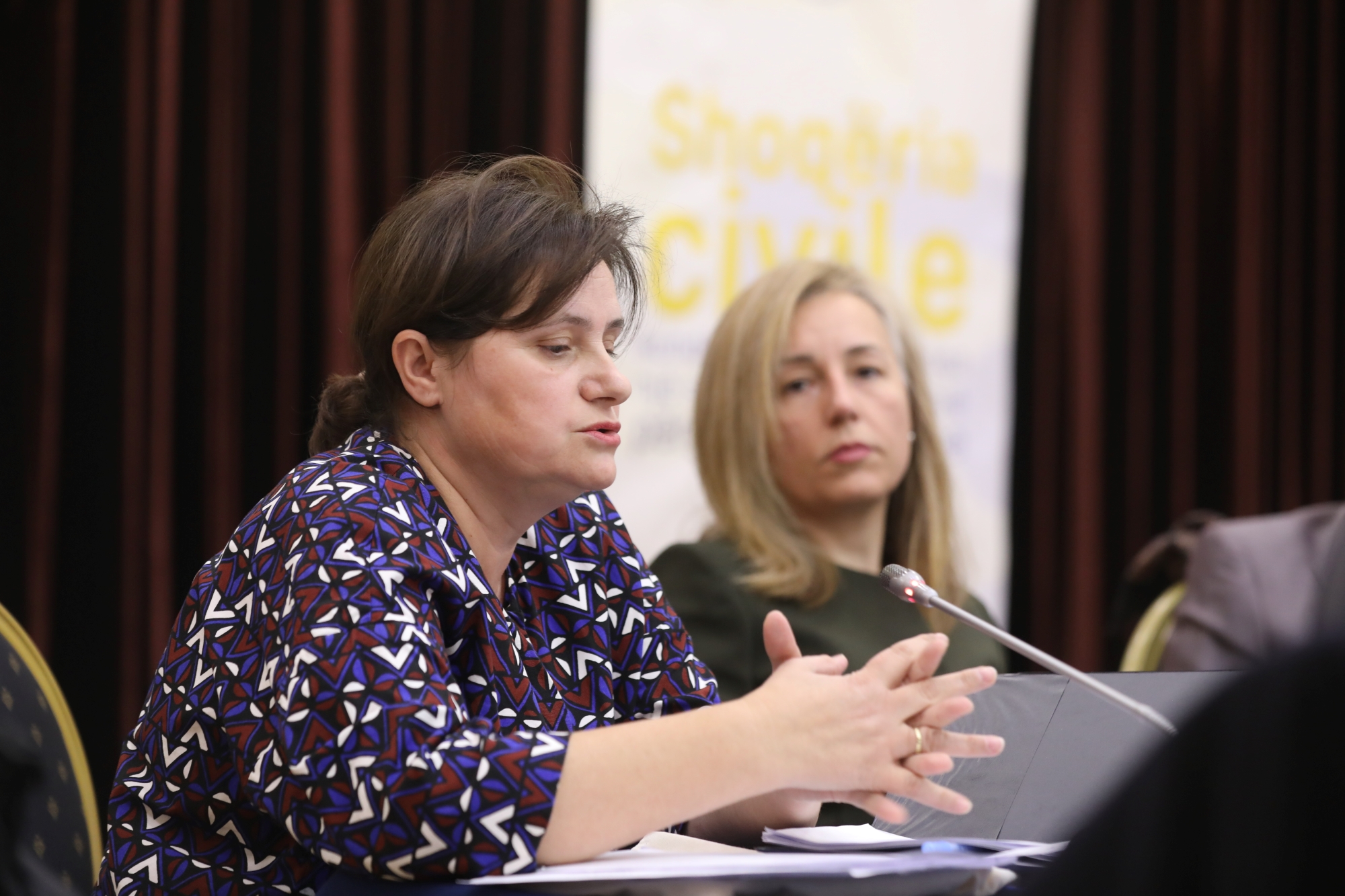The Office of the High Inspector of Justice participated in the activity organized by the Albanian Helsinki Committee, on the work of justice institutions, for two of which, the High Inspector of Justice and the High Judicial Council, it has drafted a report after monitoring their activity during 2023.
Speech of the High Inspector of Justice delivered by Inspector Magistrate
Ms. Elena Pelushi
Greetings to all,
On behalf of the High Inspector of Justice, I would like to thank the Albanian Helsinki Committee for this organization and the drafting of this report, in which findings from the monitoring carried out on the Office of the High Inspector of Justice during 2023 are presented. Appreciations to the team of experts of this Committee for the work done.
The High Inspector of Justice considers the role of civil society organizations in monitoring the work of justice institutions to be extremely important, and the Helsinki Committee is one of the six organizations with which the HIJ signed a cooperation agreement in March 2022, with the aim of increasing the performance of the Office of the High Inspector of Justice, through increased communication and the development of joint activities, within the framework of monitoring, analysis, the accountability and awareness-raising process on the activities of the HIJ Office, through the exchange of data, the organizing of periodic meetings, and the provision of relevant expertise by specialized CSOs.
Therefore, it is of great interest to us to get acquainted with the perspectives of external actors, to reflect on them, to benefit from them, and to provide any necessary clarification to understand the nature of the work of such a specific institution as the Office of the High Inspector of Justice.
Since the activity of 2023 is at the center of this report, I would like to bring to your attention that this year has had a high workload for the Office of the High Inspector of Justice, because we managed to fully complete the handling of the backlog, i.e. the contingent of 2104 cases, that the HIJ inherited from previous institutions. In parallel, the handling of complaints received from citizens and the conduct of inspections continued, while there were no changes in the staffing of inspectors, a deficiency that continues to remain a permanent challenge for the activity of the HIJ. In February 2023, the HIJ institution was moved to different working premises, due to the reconstruction of the building and this is just for an overview of the situation in which the activity was carried out until October 2024.
However, the work has continued with the same standard parameters, taking care of the main principle of our work, maintaining the balance between the public interest in the administration of justice and respecting the independence of judges and prosecutors.
During 2023, a third of the proceedings initiated, accurately evidenced in the presented report, have been at the initiative of the High Inspector of Justice which is an illustration that our institution remains attentive to the information that is made public, in addition to analyzing the problems that we identify from direct complaints oft he citizens or institutions. That said, the Office of the High Inspector of Justice constantly underlines that a set of facts may be presented in a public information, which are alleged to have occurred and which constitute a disciplinary violation, but it is the High Inspector of Justice who can make an accurate or different characterization of the facts and actions related to the disciplinary violation, without being linked to the determination that may be claimed in this public information.
In the philosophy of the work of the HIJ, disciplinary proceedings against judges and prosecutors are neither an end purpose in itself, nor a statistic to satisfy anyone who measures the work of an institution with numbers. The High Inspector of Justice continues to remain committed to the standards it sets, by examining the legitimate interests of both the complainant and the magistrate, by judging proportionally and by documenting all the evidence and testimony presented and by respecting the rights of the magistrate under investigation.
This is because disciplinary measures have two functions, first, the educational role, through which the appropriate standard of work is brought to the attention of other magistrates, and second, when this educational role cannot be carried out, then the measure becomes of a purely punitive nature, committed to the protection of the public interest, removing the magistrate from duty.
In its work, HIJ is guided by the principle that this institution cannot be a hammer over the heads of judges and prosecutors, but on the other hand, it does not overlook in any case those judges and prosecutors who violate the law, undermining the image of the magistrate and the citizens’ trust in justice.
Thank you!

